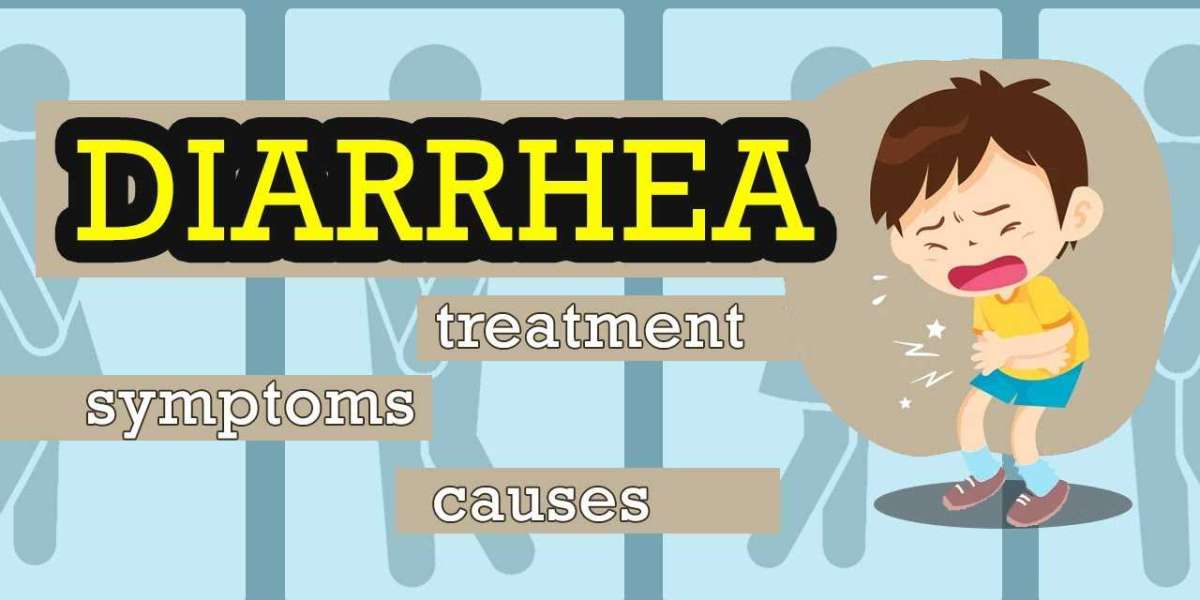When it comes to managing diarrhea, one of the most important aspects of treatment is staying hydrated. Diarrhea causes the body to lose fluids and electrolytes rapidly, which can lead to dehydration if not addressed properly. Proper hydration options help restore lost fluids, maintain electrolyte balance, and aid in quicker recovery. In this detailed guide, we will explore the best hydration strategies for diarrhea, the role of medications like Nizonide 500mg, and how they interact with hydration practices.
Understanding Dehydration and Diarrhea
Diarrhea leads to the rapid expulsion of water and electrolytes from the digestive tract, which can cause dehydration. Symptoms of dehydration include dry mouth, fatigue, dizziness, and reduced urine output. Severe dehydration can be life-threatening, particularly in infants, the elderly, and people with compromised immune systems. For these reasons, rehydration is critical.
There are two primary goals when addressing hydration during diarrhea
- Replacing lost fluids to prevent dehydration.
- Restoring electrolyte balance to ensure proper bodily function.
Best Hydration Options for Diarrhea
1. Oral Rehydration Solutions (ORS)
Oral Rehydration Solutions (ORS) are widely recognized as the best option for rehydrating during and after a bout of diarrhea. ORS contains a precise balance of water, salts (sodium and potassium), and sugars (glucose), which help to replace lost electrolytes and fluids.
WHO-approved ORS can be bought from pharmacies, and they are particularly effective because the glucose facilitates the absorption of sodium in the small intestine, which in turn promotes water retention. ORS should be consumed frequently in small amounts, even if diarrhea is persistent. Several brands offer ORS sachets that are easy to prepare by dissolving in water.
Homemade ORS Recipe
If commercial ORS is unavailable, a homemade solution can be prepared using
- 1 liter of clean water
- 6 teaspoons of sugar
- ½ teaspoon of salt
This mixture closely mimics the commercially available ORS and can be used in emergencies.
2. Clear Broths and Soups
Clear broths, especially chicken or vegetable broth, provide not only hydration but also essential electrolytes like sodium. The warmth of the broth may also be soothing to the digestive tract, reducing discomfort associated with diarrhea. The key here is to keep the broth simple and avoid adding fatty ingredients, as fats can aggravate diarrhea.
3. Coconut Water
Coconut water is a natural source of hydration and is particularly rich in potassium, an electrolyte that is often depleted during diarrhea. It is low in sugar and contains a good balance of essential minerals, making it an excellent alternative to sugary sports drinks. It should, however, be consumed in moderation, as excessive intake can sometimes lead to bloating or stomach discomfort.
4. Diluted Fruit Juices
In cases of mild dehydration, diluted fruit juices (without added sugar) can be used to help with fluid replenishment. Apple juice, for example, can provide a good source of potassium. It is essential to dilute juices (mix with an equal amount of water) because undiluted fruit juices are high in sugar, which can worsen diarrhea by drawing more water into the intestines.
5. Herbal Teas
Some herbal teas, such as chamomile or ginger tea, may offer mild hydration benefits and aid in calming the digestive system. These teas are low in sugar and contain beneficial compounds that may help reduce inflammation and discomfort in the gut. Be cautious with caffeinated teas, as caffeine can have a diuretic effect, worsening dehydration.
6. Plain Water
Water is the simplest and most widely available form of hydration. However, when used alone, it may not replace lost electrolytes efficiently. If water is the only available option, consuming small sips at frequent intervals is better than drinking large quantities at once, as this reduces the likelihood of further stomach upset.
The Role of Nizonide 500mg in Diarrhea Management
Nizonide 500mg, whose active ingredient is nitazoxanide, is an antiparasitic and antiviral medication that is commonly prescribed to treat infections like cryptosporidiosis and giardiasis, both of which can cause diarrhea. Nitazoxanide works by interfering with the energy metabolism of parasites and viruses, leading to their destruction.
While nizonide 500mg is effective in treating diarrhea caused by certain infections, it does not directly address hydration. Therefore, while taking this medication, it is critical to maintain hydration to avoid the risks of dehydration, especially since diarrhea may continue for some time after starting the medication.
Hydration Tips When Using Nizonide 500mg
Follow Prescribed Dosage
Take Nizonide 500mg exactly as prescribed by your healthcare provider. Adhering to the prescribed course is vital to ensuring that the infection is effectively eradicated, which in turn will help alleviate diarrhea over time.
Maintain Hydration Throughout the Day
While on Nizonide 500mg, continue to drink fluids regularly to ensure that dehydration does not worsen. ORS, clear broths, and water should be consumed alongside any meals to help with both hydration and electrolyte replacement.
Monitor for Side Effects
Although Nizonide 500mg is generally well-tolerated, some individuals may experience nausea or stomach discomfort as a side effect. If these symptoms occur, it’s important to continue hydrating with clear liquids to help ease stomach discomfort.
Check for Interactions
Always consult your doctor or pharmacist before combining Nizonide 500mg with any over-the-counter diarrhea medications or supplements, as some could interfere with the effectiveness of the treatment.
Electrolyte Replacement
In addition to water, your body needs a balance of electrolytes such as sodium, potassium, and chloride to function properly. Diarrhea causes the body to lose these electrolytes, which is why rehydration should focus on more than just fluids. ORS solutions are excellent for replenishing electrolytes, but natural foods and drinks can also help:
Bananas
Rich in potassium, bananas can help restore electrolyte levels. They are also easy to digest and may help solidify stools.
Boiled Potatoes
Potatoes are high in potassium and can be eaten with a small amount of salt to help with sodium replenishment.
Yogurt
If you can tolerate dairy, yogurt containing live probiotics can help restore beneficial gut bacteria that are often depleted during diarrhea. The probiotics in yogurt may aid in faster recovery.
Foods to Avoid During Diarrhea
While hydration is key, certain foods and drinks should be avoided, as they can worsen diarrhea
Caffeinated Beverages
As mentioned earlier, caffeine can increase fluid loss through urination.
Sugary or Carbonated Drinks
These can draw more water into the intestines, exacerbating diarrhea.
Dairy Products
For some, diarrhea can lead to temporary lactose intolerance. Avoiding milk and other dairy products is recommended unless they are probiotic-rich, like yogurt.
Conclusion
Hydration is a critical component in managing diarrhea, and the right fluids can make a significant difference in recovery. Oral Rehydration Solutions, coconut water, clear broths, and herbal teas are among the best options for rehydrating the body and replenishing lost electrolytes. At the same time, medications like Nizonide 500mg address the underlying cause of diarrhea when parasitic or viral infections are involved.
By combining proper hydration techniques with effective medication like Nizonide 500mg, you can better manage diarrhea and reduce the risk of dehydration. Always consult with a healthcare professional to ensure that the treatment plan aligns with your individual needs.








